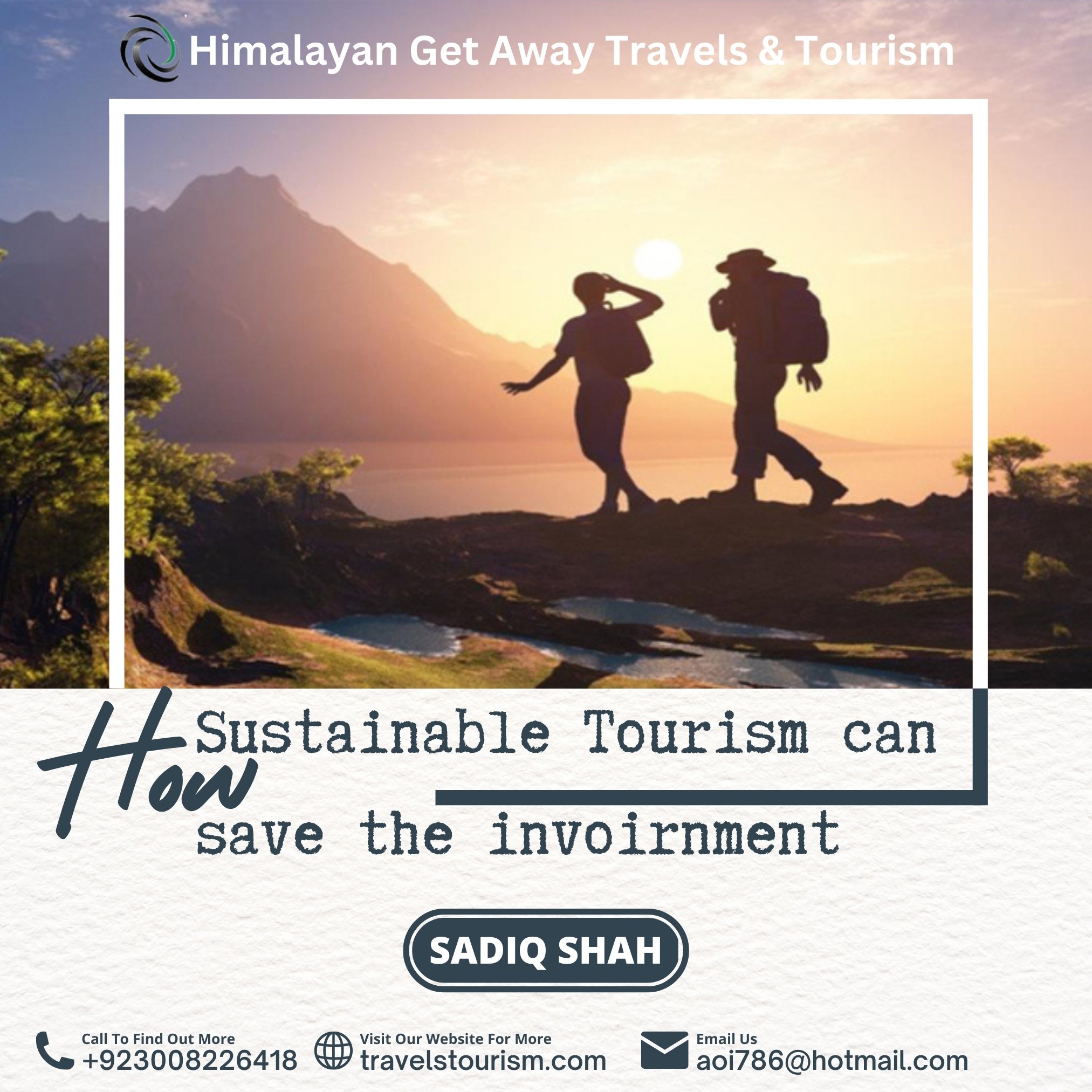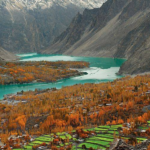Sustainable tourism is all about preserving the environment and the local community while still offering visitors an unforgettable experience. It’s about finding a balance between the needs of the environment and the needs of the tourism industry. This approach is particularly important in Pakistan’s northern areas, where tourism is an essential source of income.
To achieve sustainable tourism in Pakistan, we need to focus on several key areas.
We need to ensure that tourism is respectful of the environment. This means reducing carbon emissions and plastic waste, minimizing the impact on local ecosystems, and preserving the beauty of the natural landscapes. For example, tourists can be encouraged to bring refillable water bottles, use public transport or bikes, and stick to marked trails to avoid damaging vegetation. Similarly, businesses can be encouraged to reduce their environmental footprint by adopting green practices, such as using solar energy or composting waste.
To ensure that tourism is respectful of local communities. Visitors can help support local communities by buying local products, eating at local restaurants, and staying in locally-owned accommodations. This supports the local economy and helps preserve local culture. In addition, tourists can learn about the culture and customs of the local people, which promotes respect and understanding. For example, tourists can visit local markets, attend festivals, and participate in cultural activities.
To promote responsible tourism practices. This also includes educating tourists about sustainable tourism practices and encouraging them to act responsibly. It also means promoting ethical tourism, such as avoiding tours that exploit animals or harm the environment. Tourists can also be encouraged to leave a positive impact by volunteering, donating to local causes, or participating in eco-friendly activities.
We all need to work together to promote sustainable tourism. This means working with local communities, businesses, and the government to develop sustainable tourism plans. It also means creating partnerships with international organizations to promote Pakistan as a sustainable tourism destination.
Sustainable tourism in Pakistan’s northern areas is not just good for the environment and the local communities; it is also good for the tourism industry. Visitors are increasingly looking for authentic and responsible travel experiences, and Pakistan’s northern areas have a unique and compelling story to tell. By embracing sustainable tourism practices, we can ensure that Pakistan’s tourism industry continues to thrive while preserving the natural beauty and cultural heritage of this unique part of the world.
Another way to promote sustainable tourism in Pakistan’s northern areas is to encourage eco-friendly activities. For example, tourists can participate in activities such as wildlife photography, bird watching, hiking and trekking, mountaineering, or cycling. These activities have a minimal impact on the environment and allow visitors to experience the natural beauty of the region in a sustainable way.
It’s important to recognize that sustainable tourism is a collaborative effort. It requires the cooperation of the government, local communities, and the tourism industry to create a sustainable tourism plan that balances the needs of the environment and the needs of the tourism industry. This includes developing infrastructure that minimizes the impact on the environment, such as wastewater treatment plants or sustainable energy sources, as well as promoting responsible tourism practices.
Also, an important point is about unauthorized encroachments and deforestation, which have a devastating impact on the environment and on the local communities that rely on it. Unfortunately, this is an issue that has affected many parts of Pakistan, including its northern areas of Gilgit Baltistan, Kaghan and Swat valleys of KPK and the Pakistan side of Kashmir and Neelum Valley.
Unauthorized encroachments can take many forms, including the construction of illegal buildings or the use of land for purposes that are not permitted. These encroachments can be particularly damaging in the northern areas, where the natural landscape is fragile and easily disrupted. They can also have a negative impact on the local economy, by disrupting the traditional land use patterns that have sustained communities for generations.
Deforestation is another major issue that has affected Pakistan. The region’s forests are an important source of biodiversity, providing habitat for many species of plants and animals. They also help to regulate the climate and protect against soil erosion. Unfortunately, deforestation has become a significant problem in many parts of the region, due to illegal logging and land use change.
These environmental challenges are particularly concerning in the context of sustainable tourism, as they can have a direct impact on the quality of the tourist experience. If the natural environment is degraded or destroyed, tourists may be less likely to visit or return for future visits. This can have a negative impact on the local economy, as tourism is an important source of income for many communities in the region.
One way to address these environmental challenges is through the implementation of stronger regulations and enforcement mechanisms. This can help to ensure that unauthorized encroachments and deforestation are minimized and that the natural environment is protected for future generations. In addition, efforts can be made to raise awareness among local communities and tourists about the importance of preserving the natural environment.
Tourists can also play an important role in promoting sustainable tourism by choosing to visit destinations that prioritize environmental protection and conservation. By supporting these destinations, and by making responsible choices about how they travel and what they do when they arrive, tourists can help to promote sustainable tourism and protect the natural environment of Pakistan’s northern areas.
By Sadiq Ishaq Shah (M.D. Himalayan Get Away Travels & Tourism)
Direct: Call/WhatsApp # +923008226418 Email: api786@hotmail.com Website: www.travelstourism.com
#sustainabletourism #ecotourism #responsibletravel #environmentalprotection #naturelover #Pakistan #sustainability #travel #naturalbeauty #ecofriendly #responsibleadventure #preservation #environmentaleducation #sustainabletravel. #travelgram #explorepakistan #wanderlust #beautifuldestinations #travelphotography #travelblogger #traveldiaries #earthfocus #wonderful_places #likesharecomment #like #likesharefollow #follow #followus #himalayangetawaytravelstourism #tourist #tourism #travelandtourism #sharethisarticle #shareit #subscribe #subscribeus







